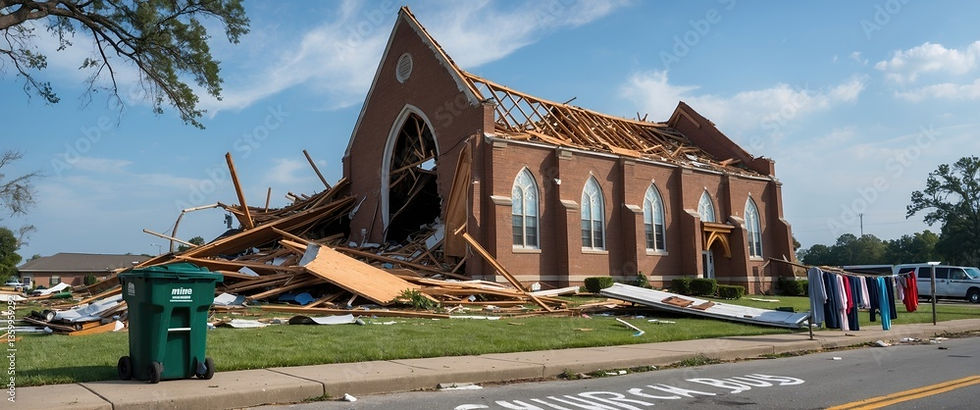Is State Farm’s Refusal to Submit to Appraisal Insurance Bad Faith?
- Inge Johnstone
- May 27, 2025
- 4 min read

Insurance bad faith occurs when an insurer deliberately attempts to put its own profits ahead of its promise to its policyholder by wrongfully denying or underpaying an insurance claim. When a dispute about the amount of loss arises in a homeowner’s claim, State Farm’s policy contains a process by which the parties can settle the dispute without going to court. This process is called the appraisal process and in it each side picks an appraiser and the two appraisers present their opinions on the amount of the loss to an umpire who decides between them. However, recent cases raise the question of whether State Farm is committing insurance bad faith when it continues to resist appraisal requested by policyholders on the grounds that there is a dispute about the scope of repairs.
State Farm Resists Policyholder Appraisals Claiming Dispute About Scope of Repairs
State Farm commonly asserts in response to requests for appraisals by policyholders that appraisal is not appropriate because there are questions about the scope of repairs. In other words, if the policyholder argues that the living room and the den were damaged by a covered peril but State Farm argues that only the living room was damaged, State Farm takes the position that the matter is not appropriate for appraisal. Courts have consistently rejected this argument by State Farm including in cases in which State Farm is a party.
The Courts Reject State Farm's Position
One such case was the 2009 case, State Farm Lloyds v. Johnson, a case decided by the Texas Supreme Court. In that case, State Farm argued that since there were questions about causation relating to what particular damage was caused by the hail, the matter was not appropriate for appraisal. However, the Texas Supreme Court distinguished between cases in which “different causes are alleged for a single injury” and cases in which “different types of damage occur to different items of property.” The court held that in the first situation, the situation involved a question of coverage and should be decided by the courts. However, in the second situation, appraisers must determine the extent of the damage caused by a covered peril. The court elaborated saying:
Indeed, appraisers must always consider causation, at least as an initial matter. An appraisal is for damages caused by a specific occurrence, not every repair a home might need. When asked to assess hail damage, appraisers look only at damage caused by hail; they do not consider leaky faucets or remodeling the kitchen. When asked to assess damage from a fender bender, they include dents caused by the collision but not by something else. Any appraisal necessarily includes some causation element, because setting the "amount of loss" requires appraisers to decide between damages for which coverage is claimed from damages caused by everything else.
As a matter of common sense, determining the “amount of loss,” which is the purpose of an appraisal clause, contains a quantity element as well as a price element.
Appraisers Can Determine What Needs to Be Repaired as well as How Much it Costs
The appraisers have to determine what is damaged by the cause of loss in order to determine the cost of that damage. As pointed out by the Texas Supreme Court, that approach would render appraisal unworkable. As one Florida court of appeals stated, “The extent and cost of the necessary repairs to the Brancos’ property will determine, in large part, the amount FIGA owes. To accomplish their task, the appraisers will have to consider the necessary method and scope of required repairs to evaluate the amount of the Brancos’ loss.” Other courts have echoed this clearly established law. See e.g. Rogers v. State Farm Fire & Casualty Co., 984 So. 2d 382, 391 (Ala. 2007); Cole v. Owners Insurance Co., 326 F.Supp.3d 1307, 1324-25 (N.D. Ala. 2018); Cobblestone Condominium Association, Inc. v. Travelers Cas. Ins. Co., 377 F.Supp.3d 1291, 1304 (N.D. Ala. 2019).
State Farm Gets Slapped Again- Insurance Bad Faith?
In a case reported on Chip Merlin’s blog, Zhao v. State Farm Fire & Casualty Company, the Illinois Court of Appeals once again slammed State Farm’s position as contradicted by clear law:
In its appellate reply brief, defendant [State Farm] boldly asserts that “[i]t cannot be reinforced enough that this Court has consistently held that appraisal cannot be used to decide questions of causation or scope of the damages.” As noted above, we have repeatedly held that appraisal is appropriate for deciding the scope of the damages.
The Court then clearly stated:
Despite defendant’s protestations, we find the law in Illinois clear and unambiguous. A trial court may compel compliance with the appraisal clause of an insurance policy to resolve disputes relating to the “amount of loss.” While questions of law and coverage are to be decided by the court, resolving some questions of causation will be necessarily included in the appraisal process.
As a result, in yet another State Farm case, a court rejected the position that State Farm continuously and stubbornly asserts, even going so far in its operations guidelines to state that a difference of opinion relating to “scope of repairs” prevents appraisal. At what point does this continued refusal to acknowledge the law that can delay claims for months and even years become bad faith? Is State Farm deliberately resisting appraisal to delay and minimize claims or to force its policyholders to file suit to collect benefits to which they are entitled?
As always, if you have any questions or have a dispute involving an amount of loss with State Farm or another insurance company, don’t hesitate to contact us.
For an in depth discussion of what constitutes insurance bad faith, click here or download our free comprehensive resource on insurance bad faith.



